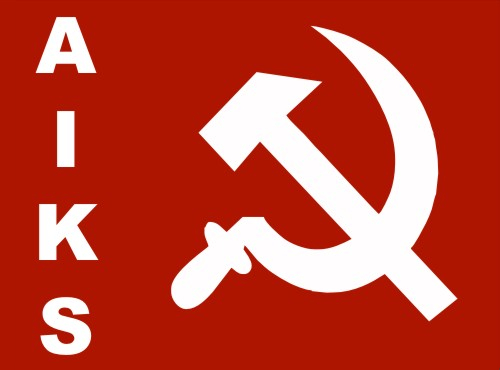AIKS Demands Withdrawal of Imposing GST on Dairy Products and Machineries
An attack on 9 crore farmers as well as consumers and Dairy cooperatives.
The GST Council in its 47th Meeting held on 28th and 29th of June, 2022 has recommended to impose 5% GST on dairy items like “pre- packed, pre-labelled curd, lassi and butter milk” as well as to increase GST on dairy machinery and milking machines from 12% to 18%. AIKS is the opinion that this move will adversely affect over 9 crore Indian households depending on the dairy sector for their livelihoods and millions of poor consumers who depend on milk and its by-products for nutrition. Livelihoods of dairy farmers will be threatened and the move to impose high GST on Dairy machinery will hit the small players and especially the cooperative sector. The BJP Government is crushing the rights of States and we are witnessing a centralisation of political authority and capital. AIKS calls for scrapping of the retrograde move.
India is the world’s largest milk producer, and the sector is characterised by the concentration of petty producers with 75 percent of the rural households owning 2-4 cows. Women and peasants from the lowest social strata are highly dependent on dairy sector. The fact that the livestock sector contributes about one-fourth output of the agricultural sector shows the economic significance of the sector for the 9 crore farming households. However, the recent changes in GST will not benefit primary producers or consumers who are already reeling under high inflationary pressure. The increase in prices will negatively affect the nutritional requirements of people from the oppressed class, caste, and gender.
The Modi regime has used the GST as a powerful tool to smash the “basic structure” of the Constitution as well as all legacies of cooperative federalism. With states giving up their fiscal autonomy to design a tax system that could take advantage of their specific production patterns, the Union government has become extremely powerful on fiscal policies. The GST regime in the last five years has led to fiscal policies that favour the class interests of finance and monopoly houses at the cost of poor peasants and small entrepreneurs.
Recent reports about the impact of the GST regime in Howrah’s foundry industry and Surat’s textile industry clearly demonstrated a consolidation of big players at the cost of medium, small and marginal players in different levels of value chains. The medium and small players either had to exit the business or merge with the bigger players. There are several similar examples from different parts of the country where there was the consolidation of bigger players and the ruin of small players.
The recommendation to increase GST on the dairy machinery and milking machines will have consequences on the cooperatives and small firms operating in value addition. Higher overhead expenses and the need of higher working capital will be in favour of the big capital. The cooperatives are already facing several challenges because of the fiscal policies. The recent policy formulations of the Modi government are clearly favouring big capital in dairy at the cost of the cooperatives and poor farmers. AIKS demands immediate withdrawal of the recommendations. AIKS calls upon dairy farmers across the country to rise in protest by uniting the small entrepreneurs and cooperative sector.
Sd/-
Ashok Dhawale
President
Sd/-
Hannan Mollah
General Secretary



